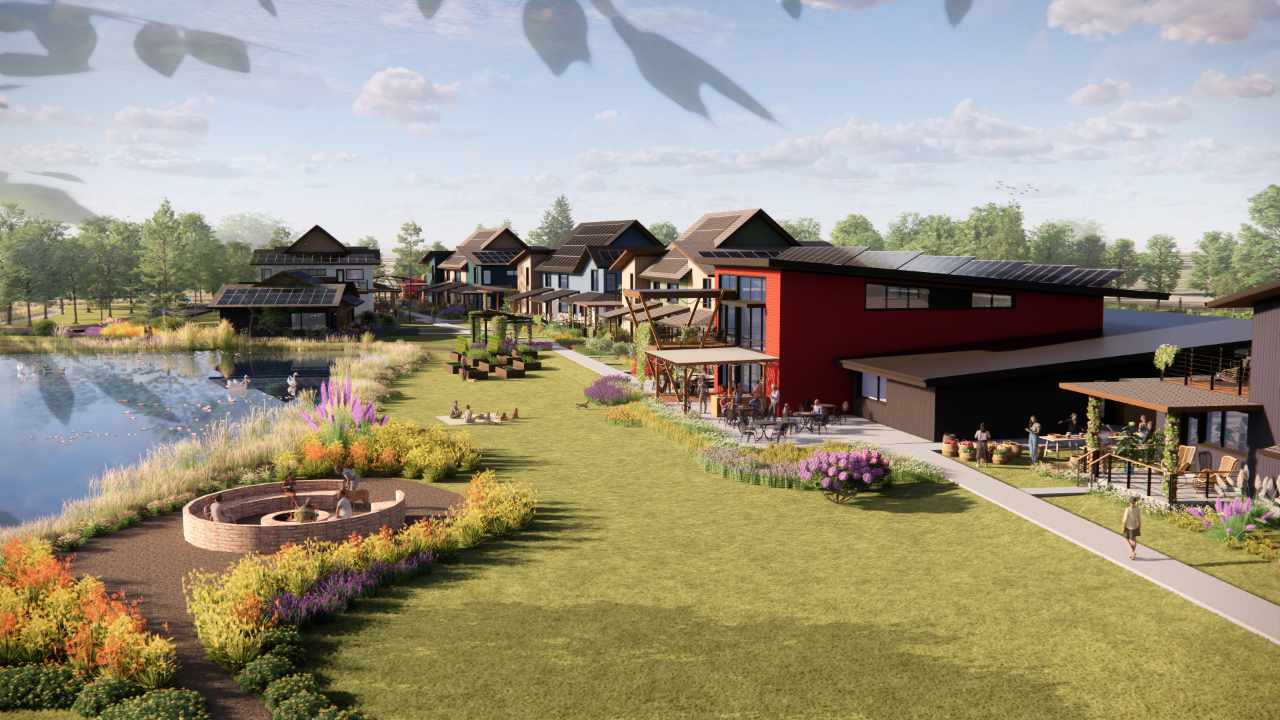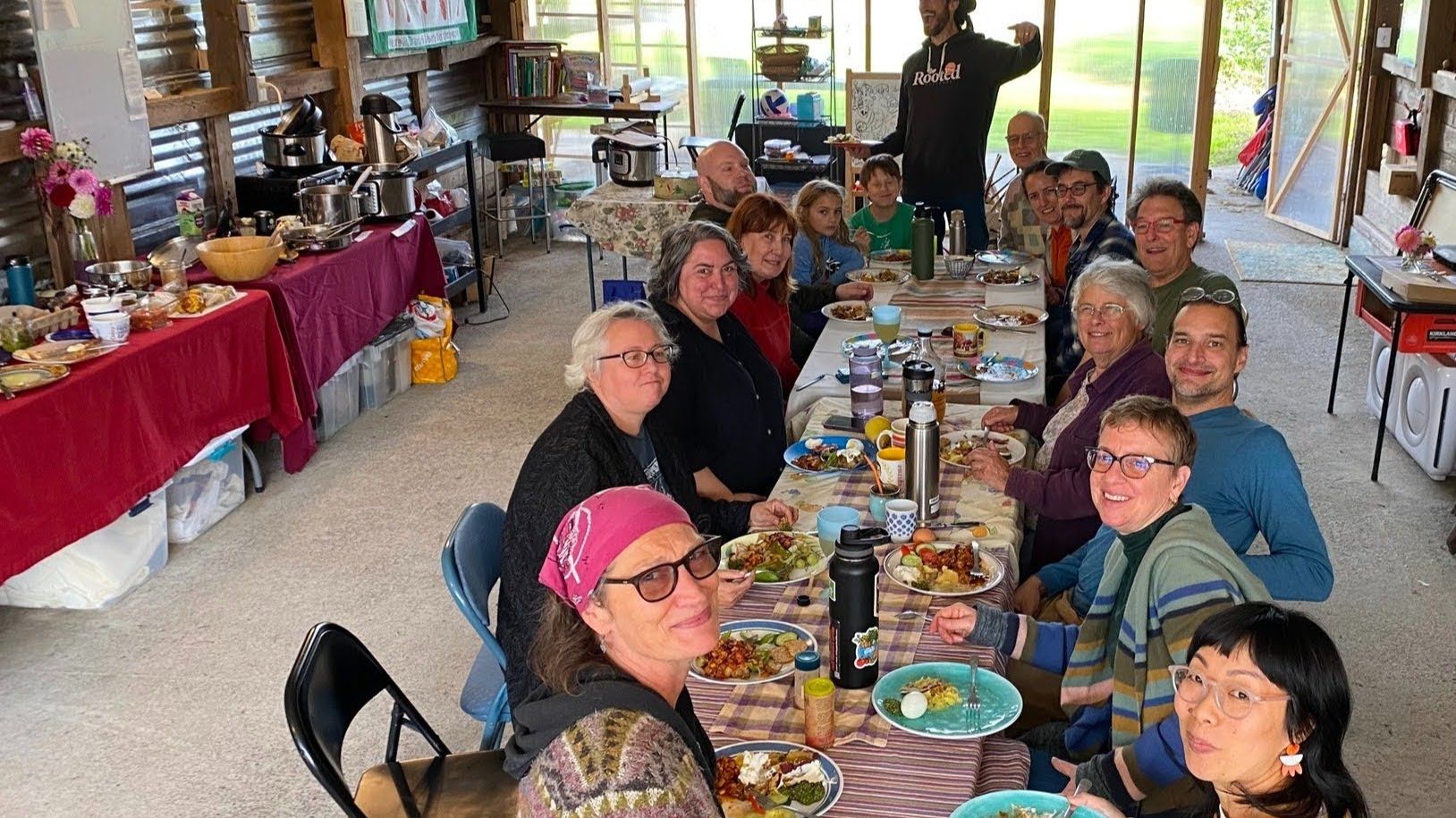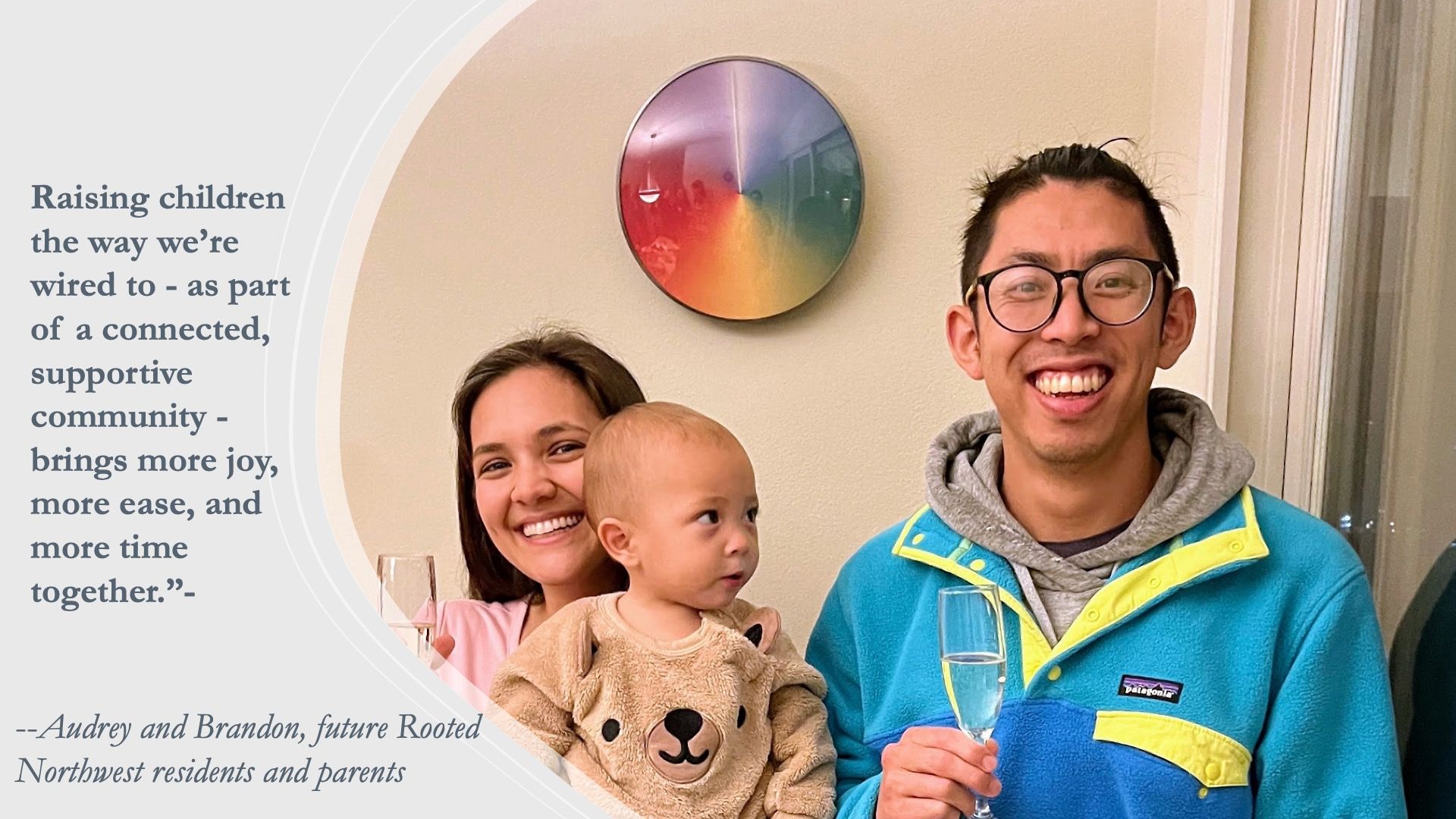
One family’s journey to Rooted Northwest
By Audrey De Los Reyes
Why we're excited to raise kids in an agrivillage
When Brandon and I became parents in 2023, we were living in rural Guatemala. The gap between our American upbringings and Guatemalan village life was immediately accentuated. For example, when we began to ask others for diapering advice, our pseudo-grandmother simply told us to cut up our old shirts and tie them around the baby’s bottom. Nowhere in town could we find a carseat, stroller, or crib for sale. There, cosleeping with your baby is the norm rather than something you have to hide from your pediatrician. Even at work, there was no expectation that I’d separate from my baby. As a PA in a medical clinic, I simply carried him on my back or handed him off when I needed to do a procedure. No one glared when he cried, and no one expected me to nurse in private.
Brandon, meanwhile, was tuning into the lifestyle of all our campesino friends who worked in the fields. It was a world apart from white-collar work that he had known before! Not that farming should be over-idealized, but there was a different kind of solace and presence to be found in getting exhausted after a day of work outside. Moreover, he saw firsthand how climate change impacted crop yields and could devastate families already at the margins of poverty. He got especially curious about more regenerative ways of growing food, and along the way, he fell in love with syntropic agroforestry and returned from his first permaculture design course inspired to put into practice what he’d learned. We had fun experimenting with a cob herb spiral, a living tree fence of madre de cacao, various fruit tree plantings, and composting with humanure.
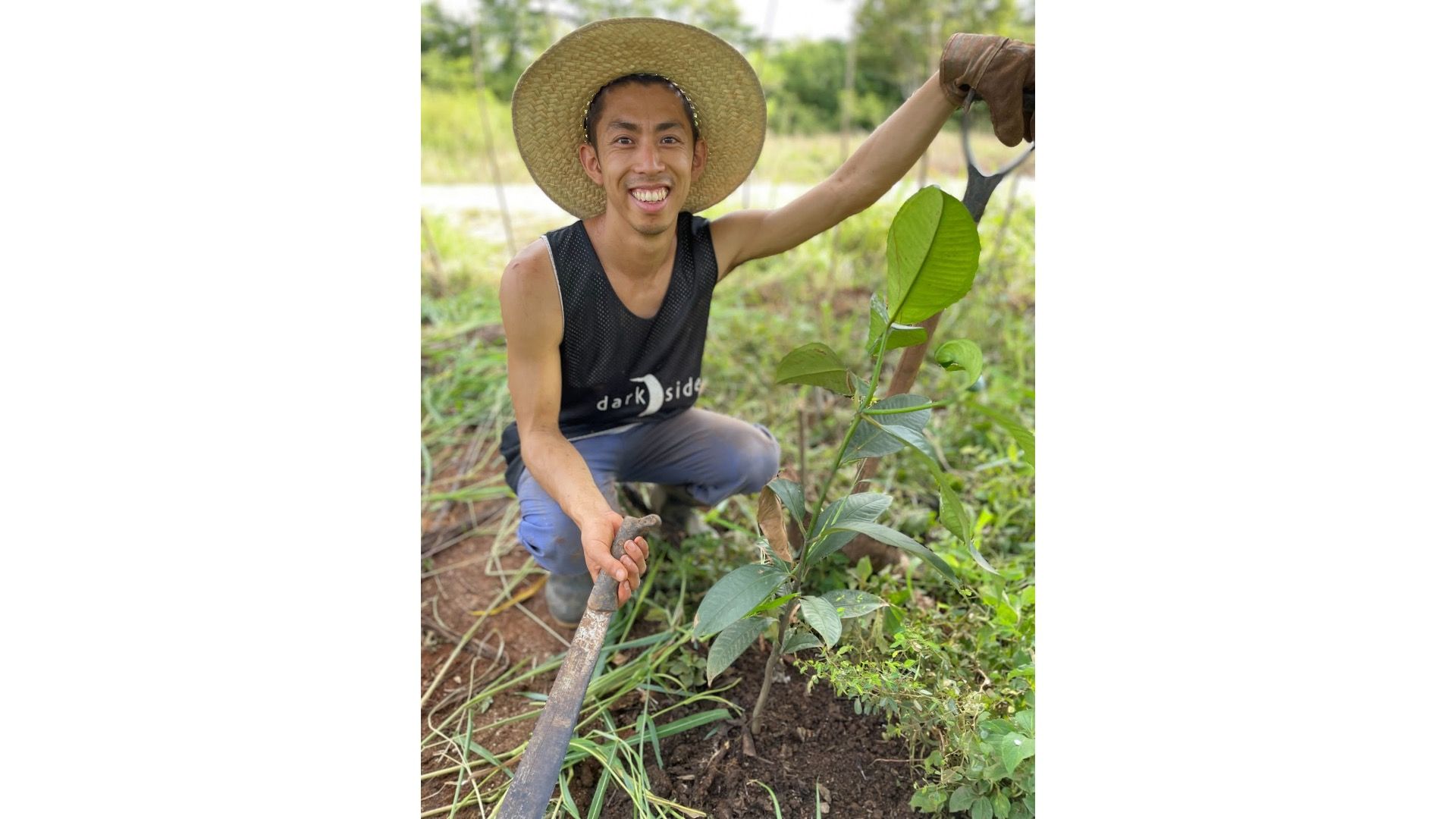
In general, we were able to really slow down and form genuine connections with others and with nature. My Guatemalan coworkers became like family, and we all cheered together when the first mango of the season fell onto the roof. We joined in their traditions and appreciated the culture that remains deeply connected to life's natural cycles—from the birth of a baby to the passing of elders at home, surrounded by loved ones. More so, the experience left us with a deep admiration for a way of life where people relied on one another. Daily life was lived in community, not in isolation.
While village life was great, nothing is ever perfect. We loved the shared meals everyday, even though every so often someone would try to slip the baby some beans before he was old enough for solids. Because we shared a communal kitchen, we also had to accept the disappointment of leftovers disappearing. We loved having so many hands to pass the baby around, even though sometimes we would have to say no to the stranger on the bus with a cough begging to hold him. We loved being able to walk or bike everywhere, even though the heat was sometimes unbearable.
When the time came to think about moving back to the States, we felt some hesitation. On the one hand, it would be nice to be closer to family, but at the same time, we had serious misgivings about returning to the American way of life. We feared that we’d have to “swim against the current” in order to raise kids in the ways we imagined. We had fears about getting lost in the busyness, constantly rushing from place to place and thing to thing, being in the car all the time, having kids addicted to sugar and screens, working jobs just to “live for the weekend,” barely seeing our kids and each other, and otherwise being isolated, indoors and stressed in our own house most of the time.
The dream of individualized lives, of the nuclear family as the basis of modern existence, is not conducive to joyful parenting. For hundreds of thousands of years, children were raised within multigenerational family structures. Grandparents, aunts, uncles, cousins, neighbors, and other members of the tribe or community watched over the children and interacted with them. Not everything depended on the parents! As the saying goes, “it takes a village”.... I wonder how much of the stress, depression, and existential anxieties increasingly diagnosed in both adults and children might be related to this isolation?
- Fred Laloux in “We are Wired to Raise Children in Community” from Ecovillage at Ithaca
Given that context, we knew we were looking for something different, and we hoped for a place that might feel as close to a “village” as possible. That search for inspiration led us to visit a friend who lives in Ecovillage at Ithaca. We were taken by the lush greenery, edible plants growing everywhere, kids running in and out of each other’s homes, parents chatting on porches, and the natural pond for summer swims. At dinner in the common house, a barefoot teenager confidently approached us to introduce himself with a big grin. It was idyllic.
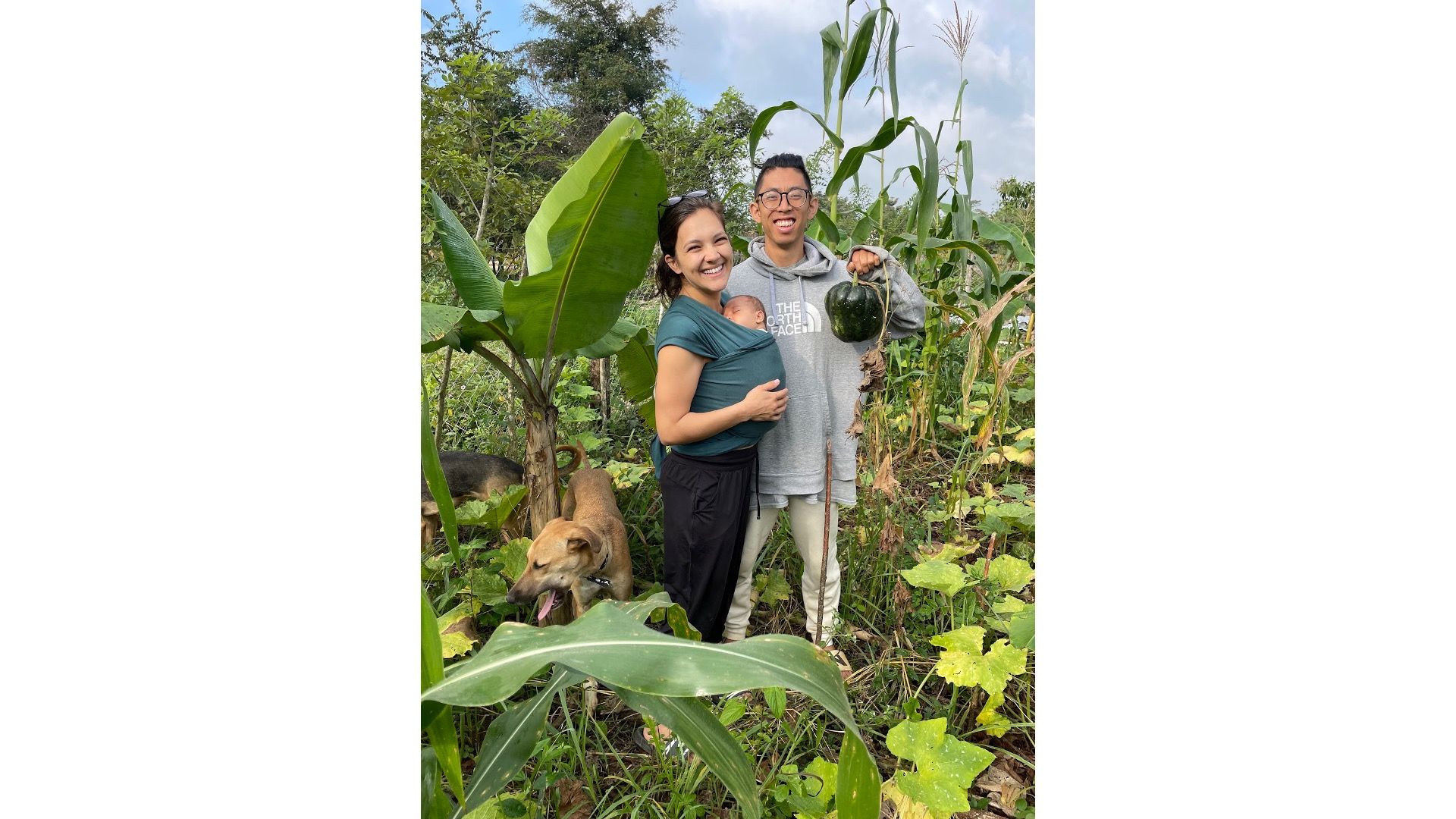
With so many friends and family tethered to my hometown, the ultimate dream was born: create our own EVI-inspired community in southern California! A deep dive commenced, including daily Zillow land searches and conversations with other successful community-starters, natural building architects, zoning offices, and city planning commissions. “Okay, we could do it!” we thought. We would just need about 10 years, endless capital, a group of dedicated families ready to take the leap, and a lot of luck.
For a while, we debated just homesteading on our own. But realistically we would be relying on YouTube tutorials, it didn’t make sense for Brandon to buy all the equipment to try out farming, and doing it all alone just sounded a lot less fun.
So our dreams sat idle for a few months until one day, Brandon’s mom came across Rooted Northwest through the U.S. cohousing directory and sent it to us. Pretty immediately, we both thought, “This is it!” Reading about the vision, I felt like Brandon could have written it himself. From the founders also drawing inspiration from Ecovillage at Ithaca, to their focus on permaculture and farming, it seemed very aligned. We felt like we won the lottery to find a community at this stage - it almost doesn’t feel fair to reap the benefits without having to do the decade of legwork! Thankfully our explorer process and visit to the land to meet everyone further validated our suspicions: this is the place for us.
Now that we’re committed to buying a home at Rooted Northwest, there is so much to look forward to. We can’t wait to grow and enjoy all the fruits, veggies, and berries right outside our door. Socializing won’t always need to involve weeks of planning, hiring a babysitter, and getting in the car. Likewise, our son can step outside into a safe, walkable neighborhood full of people we know and trust. He’ll grow up with kids of all ages, in a place where independence is encouraged but support is always nearby. We might even explore starting a self-directed forest school one day.
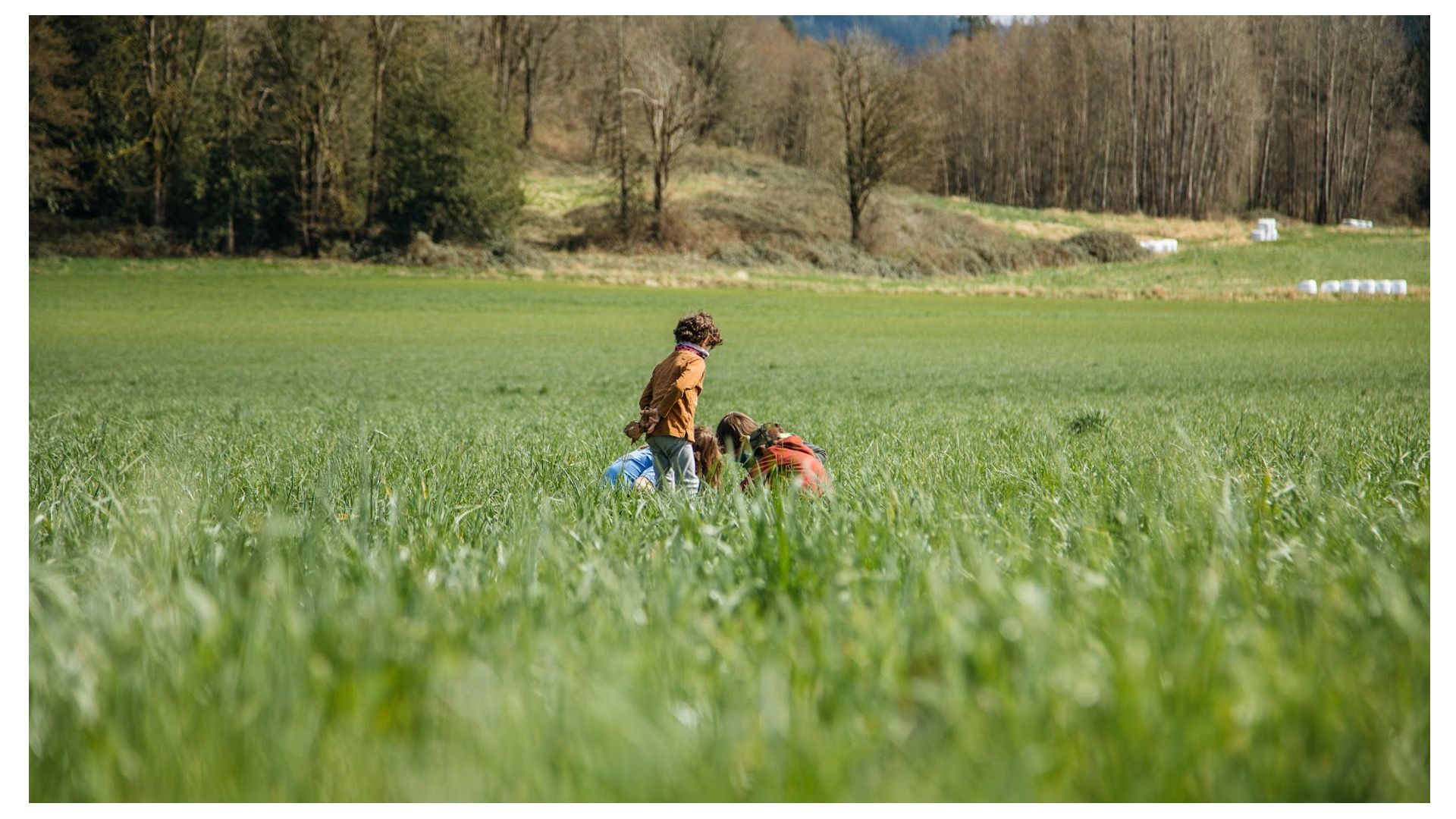
I have no illusions that community life will be perfect. As in Guatemala, I’m sure there will be times when the weather is less than favorable, parenting styles clash, or boundaries are crossed. Having our own private kitchens for meals not shared with community will surely help! But mostly I feel confident in the shared agreements and processes in place to handle conflict when it inevitably arises. I experience the other members as extremely thoughtful, caring, respectful individuals committed to honest communication and growth.
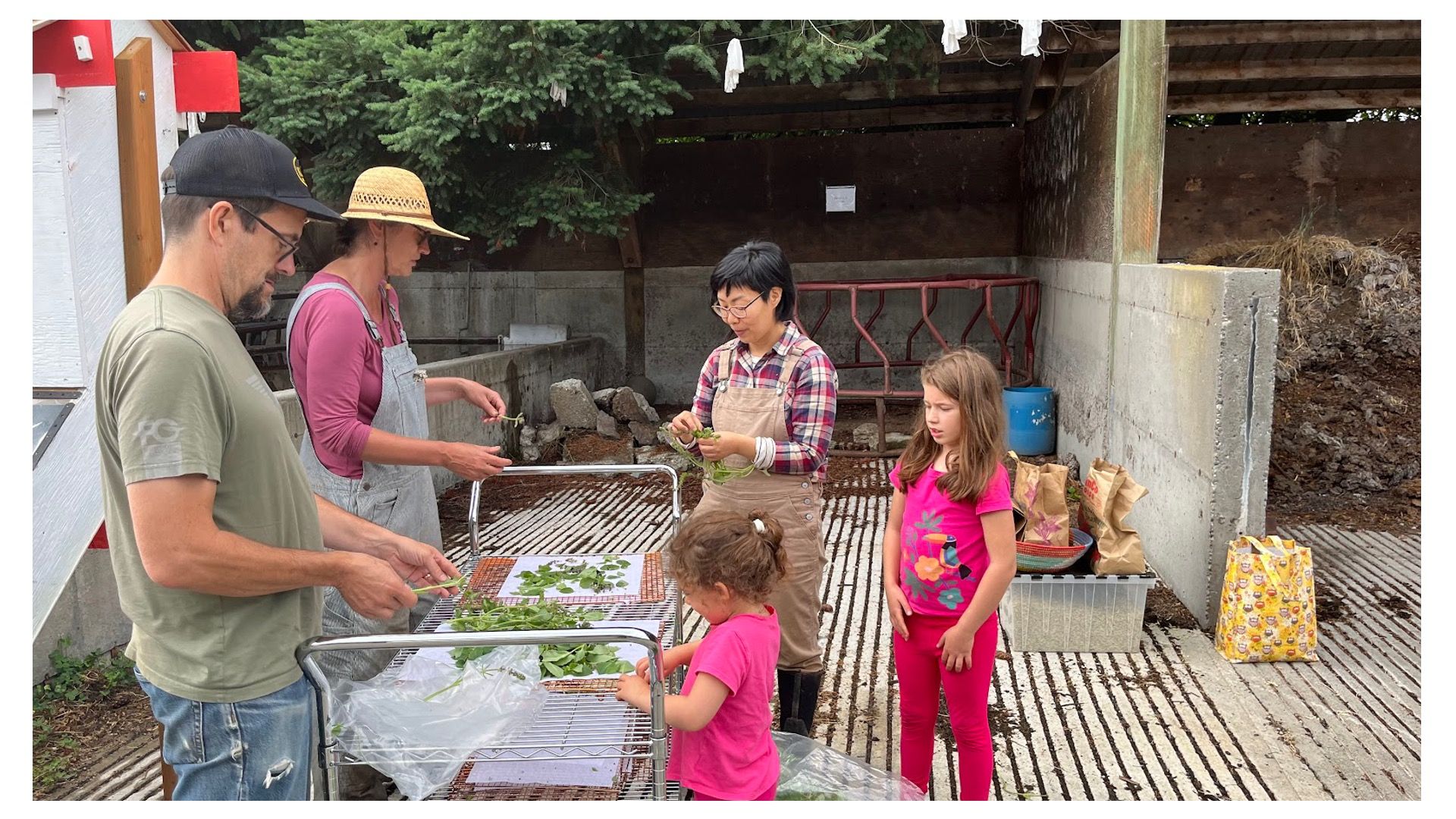
They also bring a wealth of talents and life experiences. What a gift that our child (and us!) will be able to learn from artists, farmers, healers, and builders. He will hear different languages, see different ways of doing things, and understand from an early age that there are many paths to a meaningful life. As a community, we won’t share only meals and tractors, but the moments, big and small, that make up life. From births to deaths, we can all give and receive the support we need. We can collectively create a culture and traditions that keep us nourished and connected.
Now our apprehension about moving back has been replaced with genuine enthusiasm. It can feel like a scary time to have kids, with such uncertainty, chaos, and conflict in the world. It's no wonder so many in our generation are having fewer children, or that so many kids today are anxious while parents feel overwhelmed. But we don’t have to accept that as the norm. Raising children the way we’re wired to—as part of a connected, supportive community—brings more joy, more ease, and more time together. We’re so grateful to have found Rooted Northwest as a place where we can shape a different kind of childhood, not just for our kids but for ourselves as parents. If this resonates with you, come join us! We’d love to meet you and see what we can create together.
If you’d like more information you can sign up for an online Info Session.
Attended an Info Session already? Take the next step and email us to set-up a tour of the land. Contact us or send email to [email protected].

